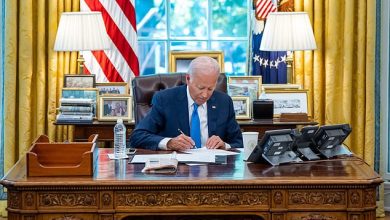IBS symptoms improve more on low-carb, low-FODMAP diets than on medications:


According to a new study, following a low-carb diet, or a low-FODMAP diet, may help relieve IBS symptoms.
d3sign/Getty Images/Moment RF
hide caption
toggle caption
d3sign/Getty Images/Moment RF
Dietary changes relieve abdominal pain and other symptoms of irritable bowel syndrome more effectively than medications, according to a new study.
Seven in 10 study participants reported a significant reduction in IBS symptoms after adopting either a type of elimination diet called a FODMAP diet or a low-carb diet, which is simpler to follow.
“The diet was found to be more effective than medical treatment,” said dietitian Sanna Nybacka, lead author of the study and postdoctoral researcher at the University of Gothenburg in Sweden. “Providing people with food and advice on how to eat is probably more cost-effective than giving them lots of very expensive medications. »

Plus, the diet doesn’t need to be complicated, according to the study published last month in The Lancet Gastroenterology and Hepatology. A low-carb diet relieved symptoms almost as much as traditional IBS dietary advice, which limits a group of short-chain carbohydrates called FODMAPs, found in many common foods, including dairy, legumes, onions, l garlic and cereals.
An estimated 6% of Americans, the majority of whom are women, suffer from IBS. Symptoms include abdominal pain associated with diarrhea or constipation or both and no visible signs of illness in the digestive tract. Chronic stress can trigger symptoms.
Researchers randomly divided 294 Swedish adults, mostly women, with moderate to severe IBS symptoms into three groups. One group received traditional IBS diet advice – including eating regular meals, limiting coffee, alcohol and soda consumption – as well as free groceries delivered to their homes and recipes for a low-fat diet. FODMAP, an acronym for fermentable oligosaccharides, disaccharides, monosaccharides and polyols.
A second group received free groceries delivered to their homes and recipes for a low-carb diet. A third group received free optimized pharmaceutical treatment.
After four weeks, participants in both diet groups reported a significant reduction in symptoms – a 76% reduction with the low FODMAP diet and a 71% reduction with the low-carb diet. The medication group reported a 58% reduction in symptoms.
Two weeks into the study, one participant, a woman in her 50s following a FODMAP diet, cried as she described the relief from abdominal pain she felt for the first time in her adult life. , Nybacka told NPR.
Other members of both food groups also reported feeling better than they had for as long as they could remember, she said.
In addition to relief from IBS symptoms, participants in all three groups reported less anxiety and depression and better quality of life.
After six months, study participants had returned to some of their previous eating habits, but the majority continued to report fewer IBS symptoms.
Researchers were surprised to find that the low-carb diet worked as well as it did, Nybacka said. They added the diet to the study after patients who had tried it in an effort to lose weight or control their diabetes told them it reduced their IBS symptoms. A low-carb diet is easier to follow than a more complicated and restrictive FODMAP diet.
Dr. Lin Chang, a gastroenterologist and professor of medicine at the University of California, Los Angeles, said the study supports the long-term benefits of the diet in treating irritable bowel syndrome. And the study informed her that a low-carb diet, high in protein and fat, could reduce IBS symptoms. “It was new,” she said.
But she thinks the study may have biased diet versus medication. “It wasn’t a completely fair comparison,” said Chang, who was not involved in the study.
Patients often have to take medication for more than four weeks, the length of the study, to see benefits, Chang said. Additionally, American doctors prescribe IBS medications that are not available in Sweden, she explained.
“The medications are still effective,” she said in a Zoom interview. “And I wouldn’t necessarily say that this study definitively proved that diet was better or more effective than medication.”
She also believes that behavioral therapies, such as cognitive behavioral therapy, which the new research has not studied, can reduce IBS symptoms. Some doctors are now prescribing apps that offer mind-body support.
The diets aren’t for everyone, Chang added. She wouldn’t put a patient with an eating disorder on an elimination diet, for example.
Following these diets without free grocery and recipe deliveries could prove difficult, but Chang pointed the finger at food service companies, including one in which she owns stock. ModifyHealth offers prepared meals designed to keep people within dietary restrictions. Unlike the Swedish study, enrollees pay for the food.
Ronnie Cohen is a San Francisco Bay Area journalist focused on health and social justice issues.
NPR News





